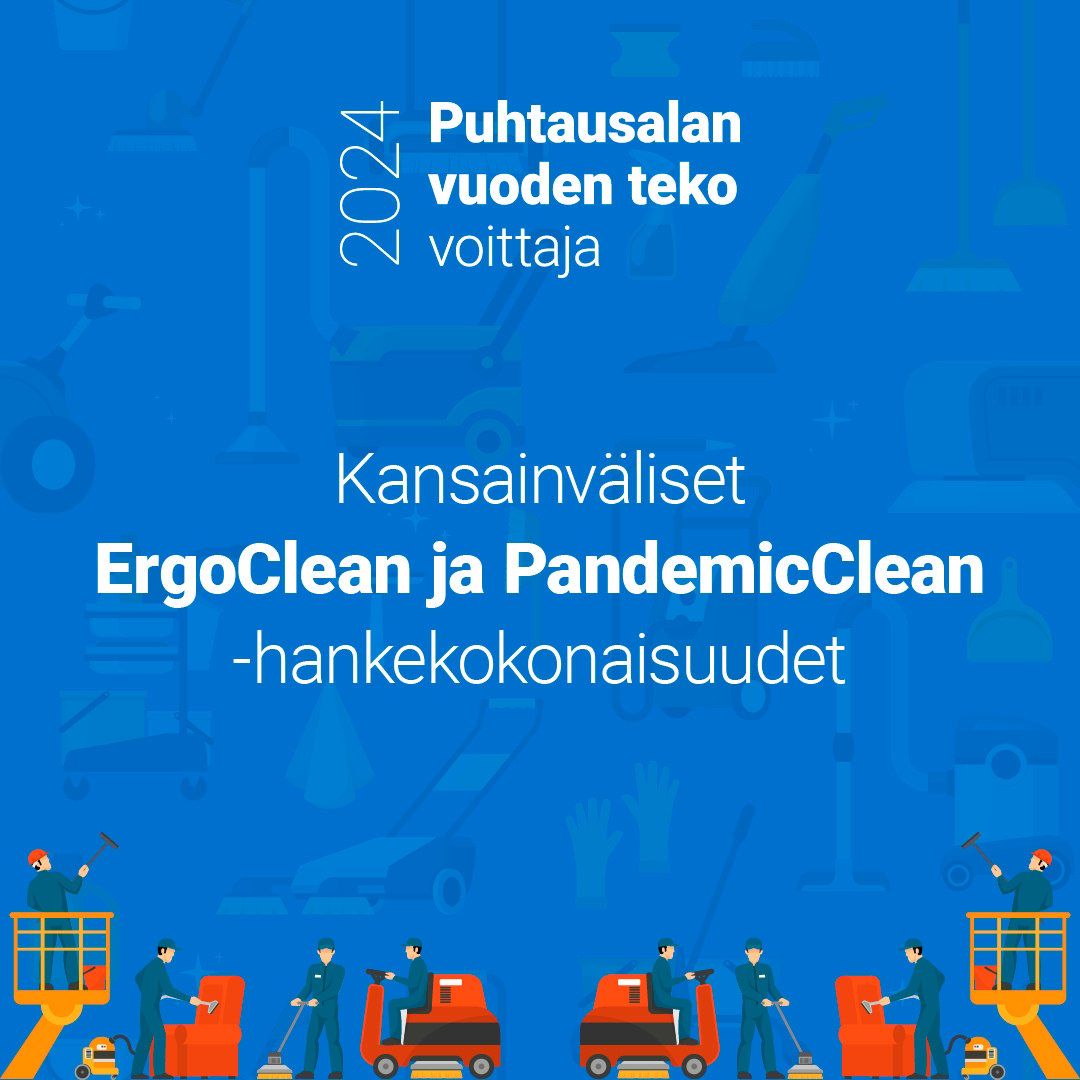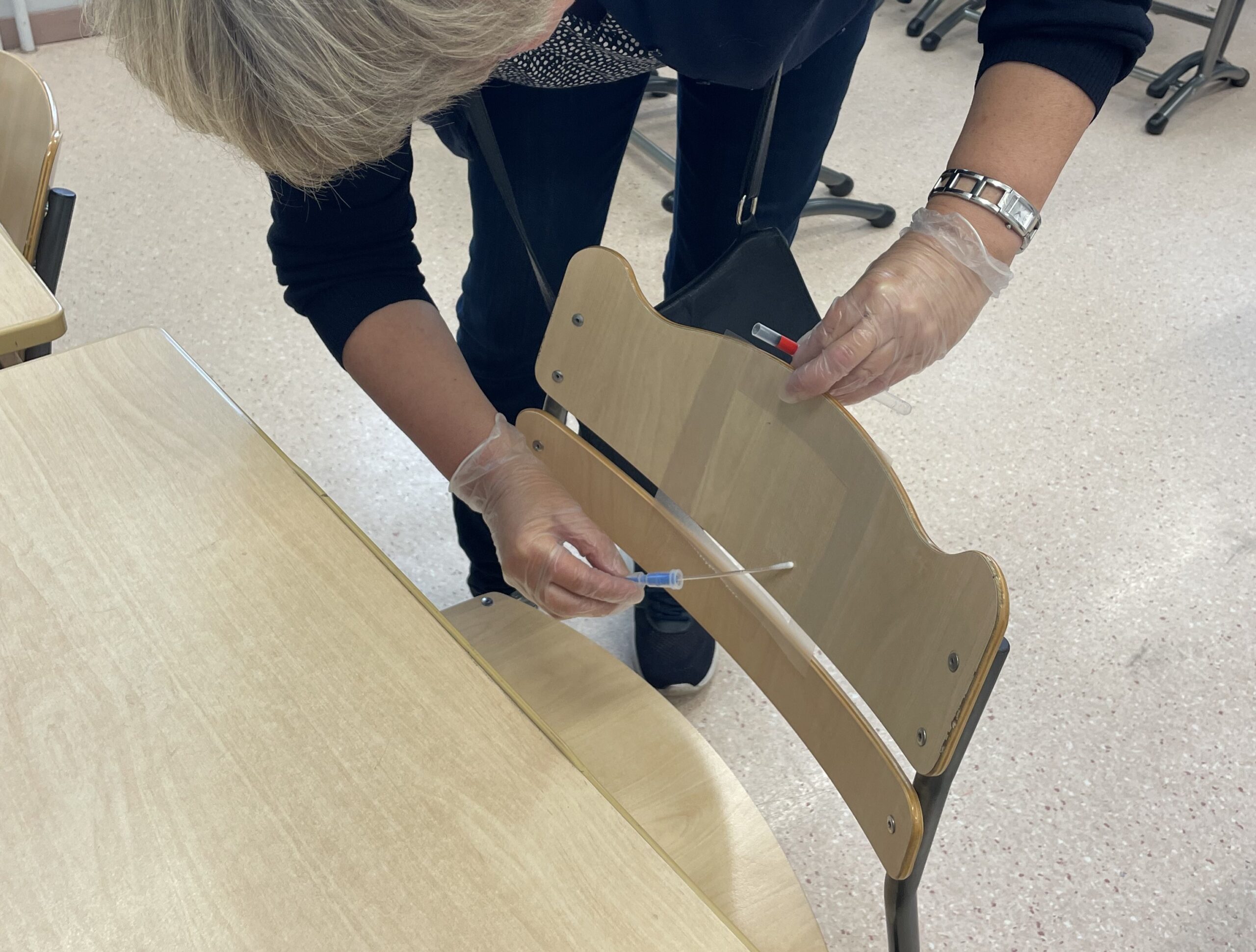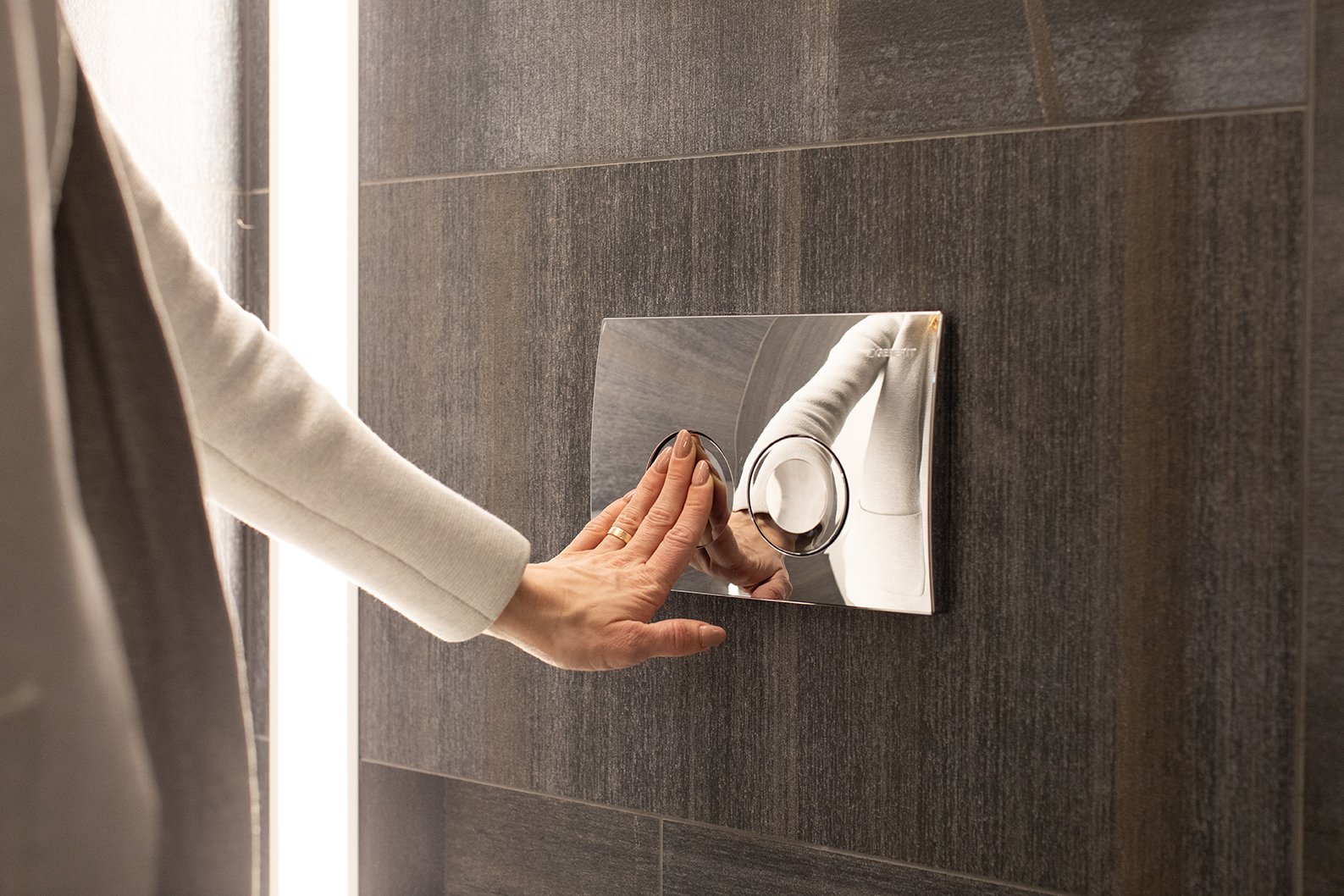info@puhastusekspert.ee +372 5611 1048
Erasmus+ project
„Safe and Effective Cleaning in Pandemic Situation“
The international project “Safe and Effective Cleaning in a Pandemic Situation” took place from 2021 to 2024. The project involved six partners from four countries — Estonia, Finland, the Netherlands, and France. The lead partner of the project was Puhastusekspert.
There is great potential and opportunity in teaching, developing, and raising awareness about cleaning to help protect people’s health. During the pandemic, it became clear that efforts often focused on creating a false sense of safety — through excessive disinfection and ineffective cleaning — instead of performing cleaning activities that truly remove dirt and pathogens from surfaces. Many people lacked sufficient knowledge about proper cleaning methods, and “cleaning more” was often perceived as being “safer.”
However, raising awareness on this topic is beyond the capacity of a single organization and requires collaboration. Therefore, we engaged in international cooperation to map and analyze scientific research, review cleaning guidelines from different countries, and conduct real-life experiments.
As a result, we developed the “Cleaning in a Pandemic Situation” guidance material, carried out practical cleaning tests, and compiled a detailed report of the findings, which formed the basis for producing instructional cleaning videos. In addition, self-audit forms were created in all partner languages, enabling organizations to assess how prepared their cleaning practices are for pandemic situations.
There is great potential and opportunity in teaching, developing, and raising awareness about cleaning to help protect people’s health. During the pandemic, it became clear that efforts often focused on creating a false sense of safety — through excessive disinfection and ineffective cleaning — instead of performing cleaning activities that truly remove dirt and pathogens from surfaces. Many people lacked sufficient knowledge about proper cleaning methods, and “cleaning more” was often perceived as being “safer.”
However, raising awareness on this topic is beyond the capacity of a single organization and requires collaboration. Therefore, we engaged in international cooperation to map and analyze scientific research, review cleaning guidelines from different countries, and conduct real-life experiments.
As a result, we developed the “Cleaning in a Pandemic Situation” guidance material, carried out practical cleaning tests, and compiled a detailed report of the findings, which formed the basis for producing instructional cleaning videos. In addition, self-audit forms were created in all partner languages, enabling organizations to assess how prepared their cleaning practices are for pandemic situations.

Internationally recognized project
Finland’s Cleaning Act of the Year 2024
The title „Puhtausalan vuoden teko 2024“ (“Cleaning Industry Act of the Year 2024”) is awarded to an initiative that has made a significant contribution to the development and visibility of the cleaning sector. The award recognizes projects and actions with the potential to influence the industry both nationally and internationally.
The recognition was awarded to the international projects ErgoClean and PandemicClean led by Puhastusekspert. The projects were acknowledged for creating new cleaning knowledge and freely accessible training materials that can be used by all professionals in the field. As a result of these projects, cleaning training and work organization have become more efficient, safer, and more supportive of employee well-being.
The recognition was awarded to the international projects ErgoClean and PandemicClean led by Puhastusekspert. The projects were acknowledged for creating new cleaning knowledge and freely accessible training materials that can be used by all professionals in the field. As a result of these projects, cleaning training and work organization have become more efficient, safer, and more supportive of employee well-being.

Cleaning in a Pandemic Situation
The COVID-19 pandemic revealed that cleaning companies were not prepared for such an unprecedented situation. At the beginning of the pandemic, unnecessary disinfection and cleaning were widely practiced — disinfectants were often used merely to create a sense of safety rather than based on actual needs.
Within the project, cleaning guidelines related to the coronavirus pandemic were collected from 15 countries. At the start of the project in 2022, a review of 40 scientific studies was conducted, and in 2024, the data was updated. Based on this research, a set of guidelines was developed to help plan cleaning activities more effectively in future pandemic situations.
Cleaning should always be considered from the perspective of both cleaning staff and facility users.
More information HERE.
Within the project, cleaning guidelines related to the coronavirus pandemic were collected from 15 countries. At the start of the project in 2022, a review of 40 scientific studies was conducted, and in 2024, the data was updated. Based on this research, a set of guidelines was developed to help plan cleaning activities more effectively in future pandemic situations.
Cleaning should always be considered from the perspective of both cleaning staff and facility users.
More information HERE.
Real-life cleaning experiments in Finland
The purpose of the experiments was to determine whether the required cleanliness standards are achieved during daily cleaning routines. In addition, the aim was to gather information that would help cleaning companies better prepare for future pandemics and base their work on scientific knowledge.
The studies consisted of practical cleaning experiments carried out in a school environment. The tests took place between February 2 and November 11, 2023, during which a total of 1,010 ATP and microbiological samples were collected.
The results clearly demonstrate the challenges that cleaning companies may face in practice. Moreover, it was concluded that visually clean surfaces are not always microbiologically clean. The most surprising finding was that in 20–30% of cases, surfaces were dirtier after cleaning than before.
Read more in the report to find out why this happened — and what caused surfaces to become dirtier after cleaning.
The studies consisted of practical cleaning experiments carried out in a school environment. The tests took place between February 2 and November 11, 2023, during which a total of 1,010 ATP and microbiological samples were collected.
The results clearly demonstrate the challenges that cleaning companies may face in practice. Moreover, it was concluded that visually clean surfaces are not always microbiologically clean. The most surprising finding was that in 20–30% of cases, surfaces were dirtier after cleaning than before.
Read more in the report to find out why this happened — and what caused surfaces to become dirtier after cleaning.

Which cleaning methods are the most effective?
Unfortunately, there is no single method that fits every situation. The videos share recommendations that can be applied in daily cleaning routines, helping to create conscious cleanliness.
The content of the videos was developed in collaboration between four countries — Estonia, Finland, the Netherlands, and France — and is based on surface hygiene tests conducted in Finland during 2022–2023.
More information HERE.
The content of the videos was developed in collaboration between four countries — Estonia, Finland, the Netherlands, and France — and is based on surface hygiene tests conducted in Finland during 2022–2023.
More information HERE.

Self-Assessment Questionnaire
By completing the self-assessment questionnaire, you can find out how well your cleaning service is prepared for a pandemic situation.
The questionnaire is designed for anyone who wishes to analyze and improve cleaning results and processes, as well as to identify areas that may go unnoticed during cleaning. It covers both the cleaning activities and the outcomes of those activities.
After completing the questionnaire, you will have a clearer understanding of the weak points in your cleaning service and what needs to be improved to ensure higher quality and readiness.
The questionnaire is designed for anyone who wishes to analyze and improve cleaning results and processes, as well as to identify areas that may go unnoticed during cleaning. It covers both the cleaning activities and the outcomes of those activities.
After completing the questionnaire, you will have a clearer understanding of the weak points in your cleaning service and what needs to be improved to ensure higher quality and readiness.
Project Partners:
Find more information about the data collected within the project here.
project’s website.
project’s website.







